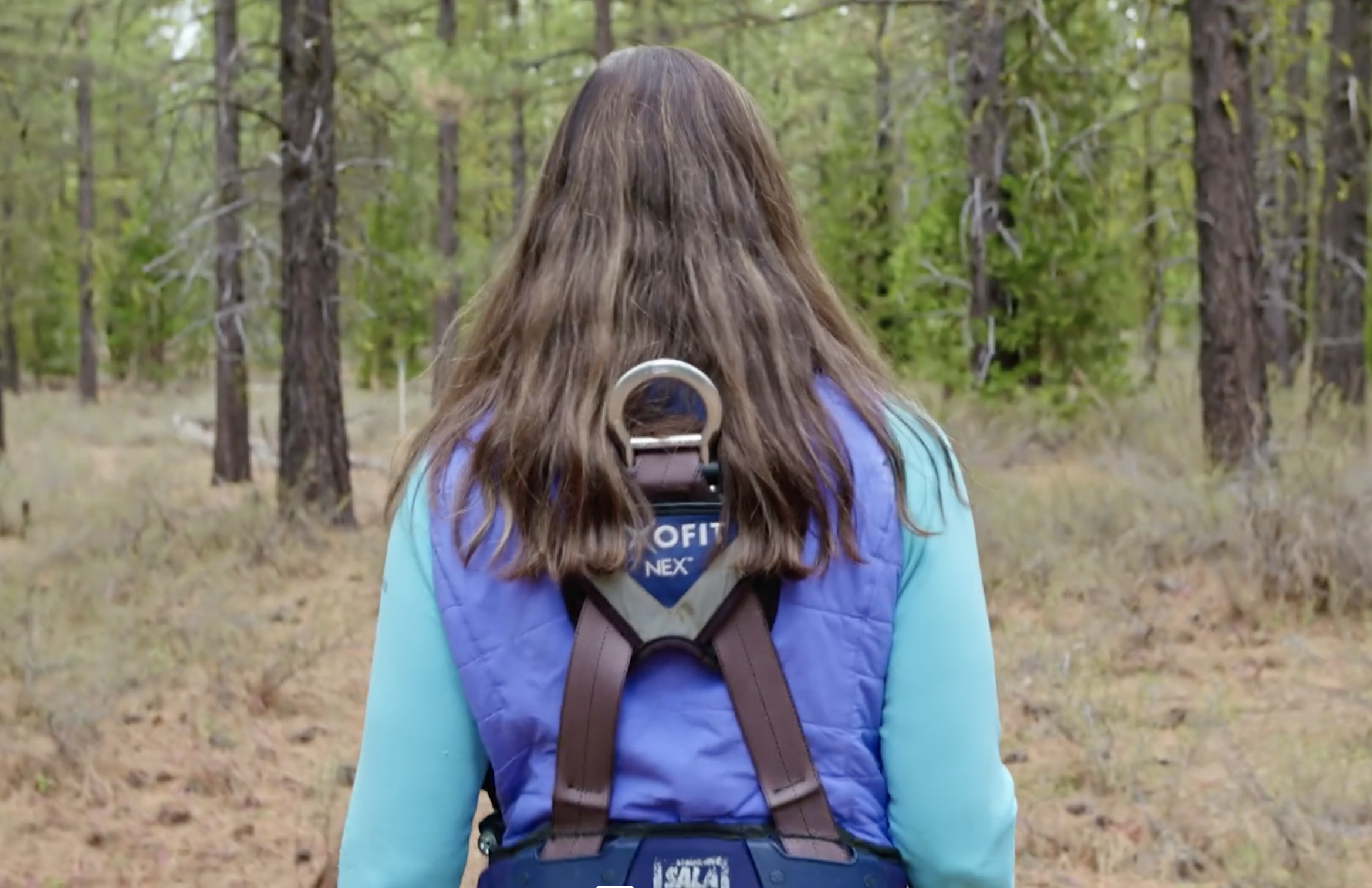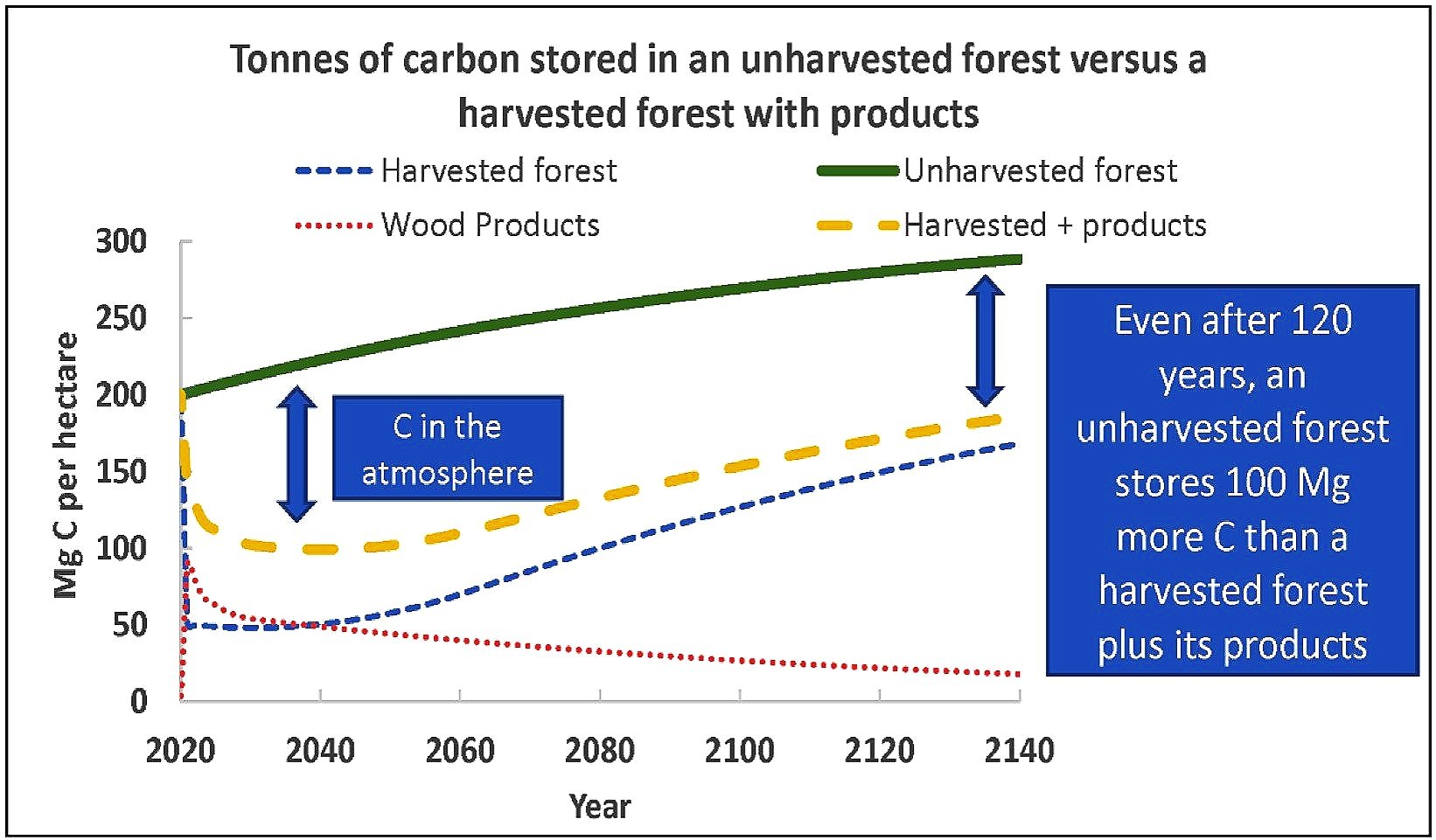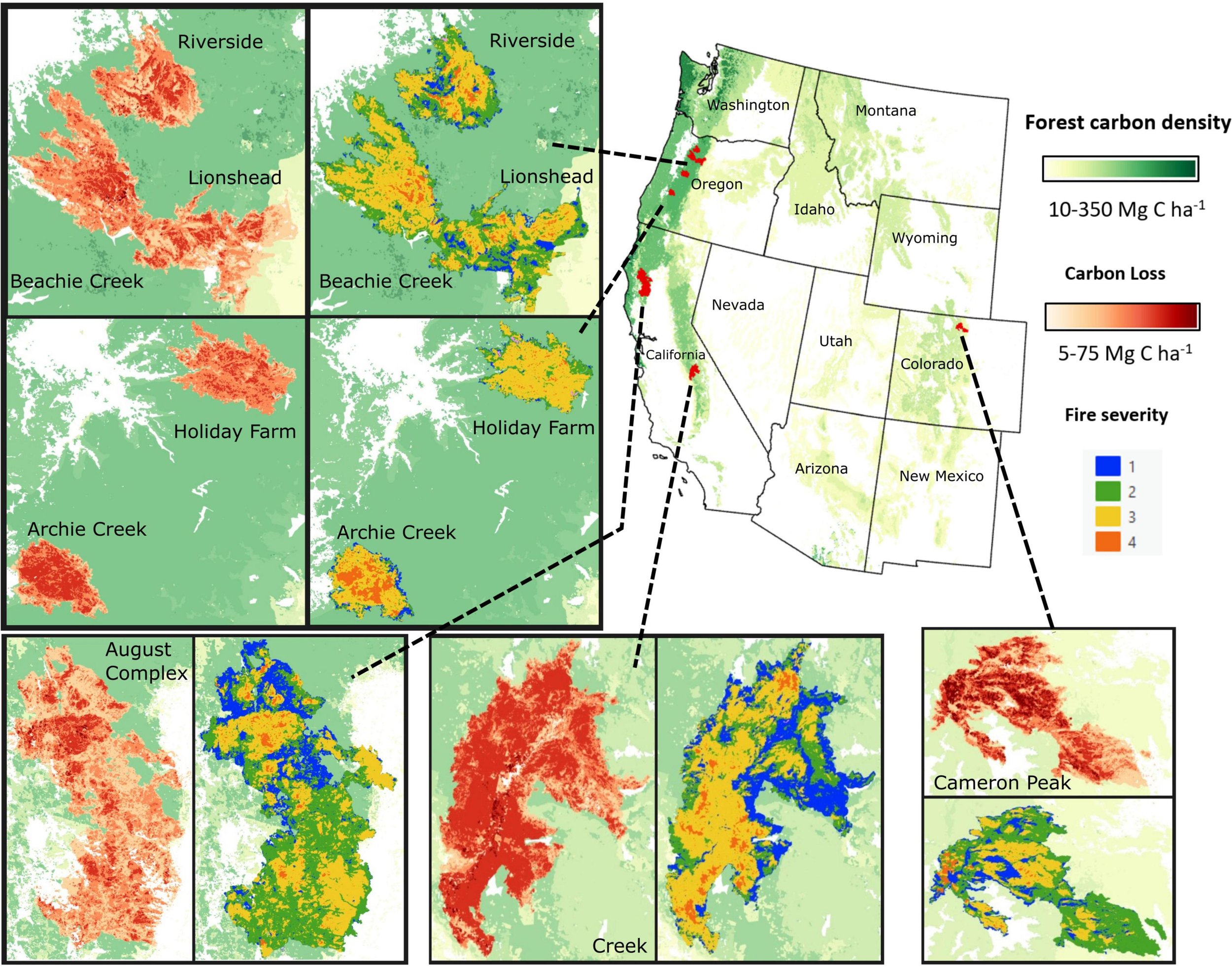
“When we look at fire emissions, they're a lot less than people think. The stuff that goes in the atmosphere is the small trees, the duff, the shrubs, and those kinds of things.”
- Beverly Law, Ph.D., Oregon State University
Dr. Law is an expert on how climate change, fire, and forest management impact the carbon and water cycles of a forest ecosystem.
Her research shows that harvesting trees to save them from fire doesn’t reduce carbon emissions, but actually increases them.
The Pacific Northwest represents some of the most carbon-dense forests in the world, which can store carbon in trees for 800 years or more. Oregon’s net ecosystem carbon balance was equivalent to 72% of total emissions in 2011–2015. Reforestation, afforestation, lengthened harvest cycles on private lands, and restricting harvest on public lands would increase carbon balance by 56% by 2100, with the latter two actions contributing the most.
Studies comparing the carbon benefits of wood products to alternative materials have been found to overestimate the benefit by 2 to 100-fold by not counting the full life cycle carbon and the shorter durability of wood relative to alternative materials.
Dr. Law's research has revealed that allowing old-growth forests to live longer increases carbon storage by forests relative to the planting of new forests.
Forest Carbon Emission Sources Are Not Equal: Putting Fire, Harvest, and Fossil Fuel Emissions in Context
Public land management aimed at less-intensive fuels reduction (such as removal of “ladder” fuels, i.e., shrubs and small-diameter trees) will help to balance reducing catastrophic fire and leave live mature trees on the landscape to continue carbon uptake.
Creating Strategic Reserves to Protect Forest Carbon and Reduce Biodiversity Losses in the United States
Many of the current and proposed forest management actions in the United States are not consistent with climate goals; preserving 30 to 50% of lands for their carbon, biodiversity and water is feasible, effective, and necessary for achieving them.






